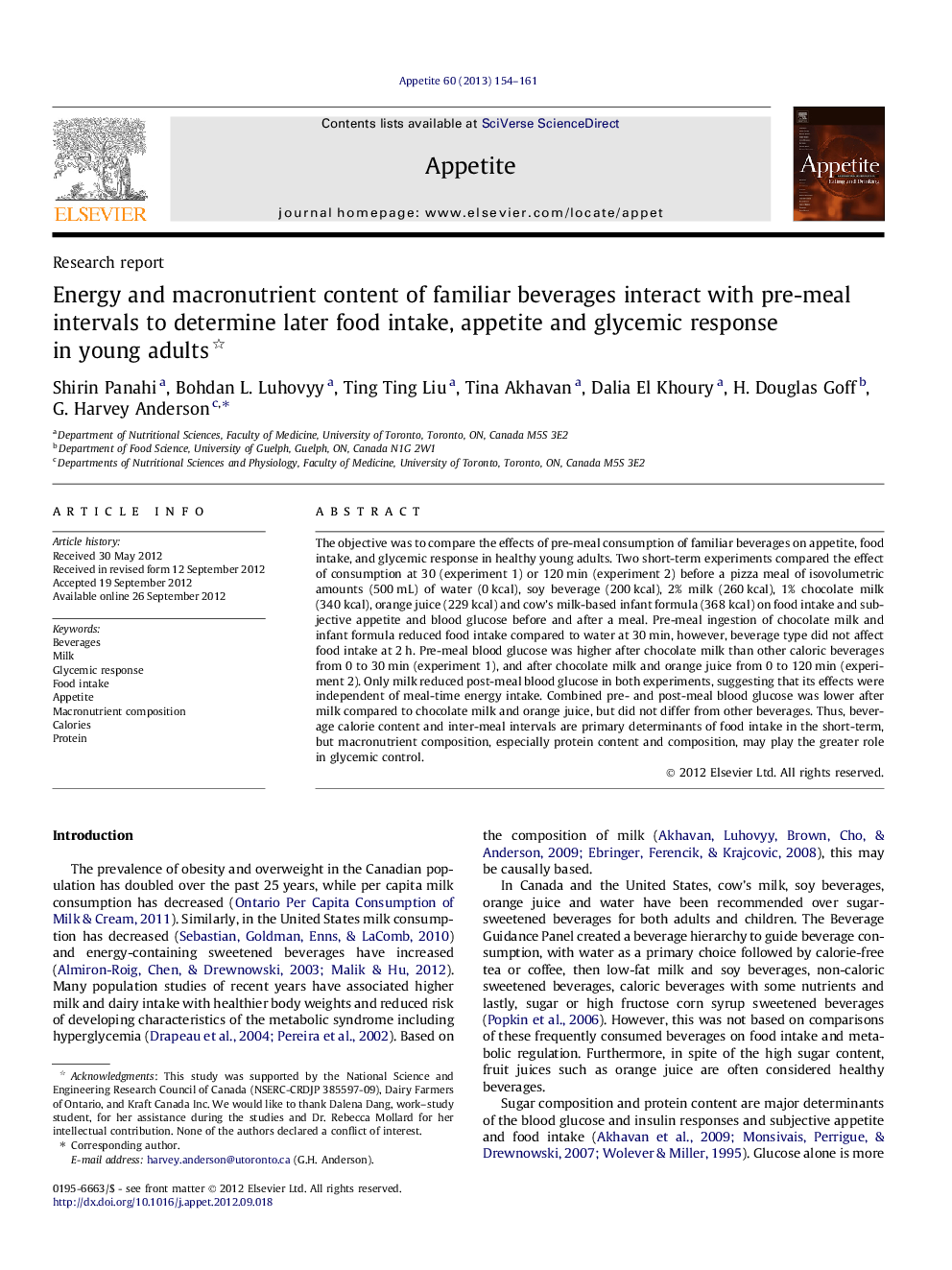| Article ID | Journal | Published Year | Pages | File Type |
|---|---|---|---|---|
| 939776 | Appetite | 2013 | 8 Pages |
The objective was to compare the effects of pre-meal consumption of familiar beverages on appetite, food intake, and glycemic response in healthy young adults. Two short-term experiments compared the effect of consumption at 30 (experiment 1) or 120 min (experiment 2) before a pizza meal of isovolumetric amounts (500 mL) of water (0 kcal), soy beverage (200 kcal), 2% milk (260 kcal), 1% chocolate milk (340 kcal), orange juice (229 kcal) and cow’s milk-based infant formula (368 kcal) on food intake and subjective appetite and blood glucose before and after a meal. Pre-meal ingestion of chocolate milk and infant formula reduced food intake compared to water at 30 min, however, beverage type did not affect food intake at 2 h. Pre-meal blood glucose was higher after chocolate milk than other caloric beverages from 0 to 30 min (experiment 1), and after chocolate milk and orange juice from 0 to 120 min (experiment 2). Only milk reduced post-meal blood glucose in both experiments, suggesting that its effects were independent of meal-time energy intake. Combined pre- and post-meal blood glucose was lower after milk compared to chocolate milk and orange juice, but did not differ from other beverages. Thus, beverage calorie content and inter-meal intervals are primary determinants of food intake in the short-term, but macronutrient composition, especially protein content and composition, may play the greater role in glycemic control.
► These studies examined the short-term effects of familiar beverages. ► Cow’s milk (2% M.F.) resulted in the lowest post-meal glycemic response. ► Calorie content and inter-meal intervals are primary determinants of food intake. ► Macronutrient composition may play the greater role in glycemic control. ► Protein content and source may be a factor in glycemic control.
